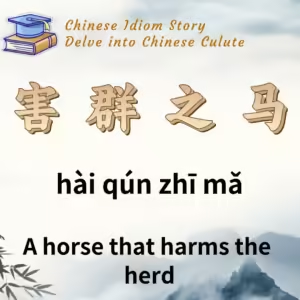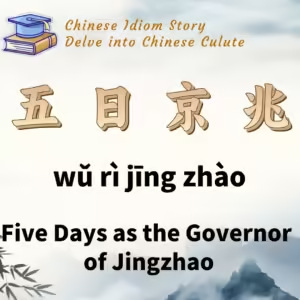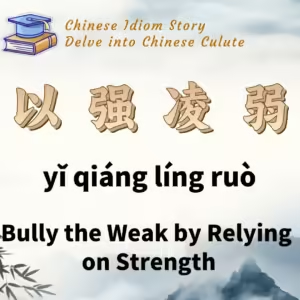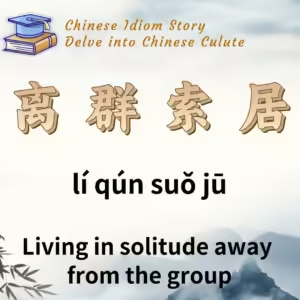
Chinese Idiom: 害群之马 (Hai Qun Zhi Ma)
English Translation: A horse that harms the herd
pīn yīn: hài qún zhī mǎ
Idiom Meaning: This idiom refers to individuals who pose a danger to the collective, similar to a horse that endangers the safety of the herd. It highlights the idea that one person’s harmful actions can negatively impact a group.
Historical Source: From Zhuangzi (《庄子·徐无鬼》).
Idiom Story:
One day, the Yellow Emperor set out to visit the wise sage Da Wei at Mount Juzi. Accompanied by his followers, including Fang Ming and Chang Yu as guards, and Zhang Ruo and Ta Peng leading the way, they arrived at the Xiangcheng Plain but lost their bearings. The seven sages were at a loss, unable to find anyone to ask for directions.
Just then, they encountered a young boy tending to some horses. The Yellow Emperor asked him, “Do you know the way to Mount Juzi?” The boy replied confidently, “Of course I do.”
Curious, the Yellow Emperor followed up, “Do you know where the sage Da Wei lives?” The boy responded affirmatively. Impressed, the Yellow Emperor pressed further, “Then tell me, how should one govern the world?”
The boy answered, “Governing the world is like riding freely in the wilderness—just keep moving forward without complicating matters. A few years ago, I was troubled by dizziness. An elder advised me to ride in the sunlight on the fields of Xiangcheng and forget all worldly concerns. Now that I am healed, I wish to wander beyond the mundane again. Governing the world should be just like this; I don’t think I need to say more.”
Unsatisfied, the Yellow Emperor asked, “What do you mean by that? How should the world truly be governed?”
The boy replied, “Governing the world is no different from managing my horses. All you need to do is drive away the horses that harm the herd.”
The Yellow Emperor was enlightened by this simple yet profound statement and honored the young boy as a heavenly teacher, expressing his gratitude before continuing on his journey.
This story illustrates the essence of the idiom “害群之马,” emphasizing the importance of removing harmful elements from a group to ensure the well-being of the collective.






